Pesticide Environmental Stewardship Program (PESP)
At Mosquito Joe, we care about making your outdoor spaces something to be enjoyed. Whether you’re hosting a barbecue, having fun with the kids, or playing a game of fetch with Fido, outdoor pests such as mosquitoes, ticks, and fleas should be the least of your concerns. To show our commitment to improving the lives of our customers, we’re excited to announce our partnership with the Pesticide Environmental Stewardship Program. Established by the Environmental Protection Agency in 1994, the program seeks to decrease the amount of risks associated with pest management in areas where people live, work and play.
This partnership provides an opportunity to showcase the ways that Mosquito Joe seeks to protect the communities we serve. Keep reading to see some of the initiatives Mosquito Joe has in place!
Integrated Pest Management
The Pesticide Environmental Stewardship Program encourages members to use an Integrated Pest Management (IPM) approach to find innovative solutions to common pest management challenges. This approach to pest management takes into consideration the life cycle of pests as well as the environment. Mosquitoes go through four life stages; egg, larvae, pupae, and adult. Once fully matured, mosquitoes are able to breed and wreak havoc. While male mosquitoes can live up to 10 days, female mosquitoes can live as long as 6 weeks. In addition to eliminating mosquitoes on contact, our treatment schedules interrupt the life cycle of mosquito populations which make treatments more effective. We also offer an all-natural treatment that aligns with the goals of Integrated Pest Management. Applied every 14 days rather than 21, this treatment option is ideal for those that seek an alternative to synthetic products.
Customer Education
A major aspect of our partnership with PESP is educating customers on the importance of mosquito, tick and flea control. While these pests are known as common nuisances, they can also pose a number of health risks. Vector-borne illnesses such as West Nile Virus, Rocky Mountain Spotted Fever and Lyme disease are frequently reported throughout the summer and fall months. Mosquito Joe makes customer education a top priority to ensure the communities we serve are made aware of reported cases of vector-borne illness in their local area. Sharing tips on how to maintain an itch-free backyard provides another level of protection for yourself, your family and your pets!
In addition to regularly sharing educational information, Mosquito Joe works to raise awareness about the prevalence of vector-borne illnesses abroad. Each year we partner with the Nothing but Nets foundation to provide treated bed nets to families in regions where malaria is prevalent such as Sub-Saharan Africa, Latin America and the Caribbean. We’re proud to announce that Mosquito Joe has been able to raise over $67,000 and contribute over 6,700 bed nets to families in need.
Mosquito Joe’s partnership with the Pesticide Environmental Stewardship Program demonstrates the pride we take in not only making outside fun again, but in working to improve the communities we serve. With our satisfaction guarantee, Mosquito Joe aims to provide an itch-free environment for our customers. Click here to find a Mosquito Joe location in your area and get on the schedule today!
For more information on the PESP program, click here to visit the official website.



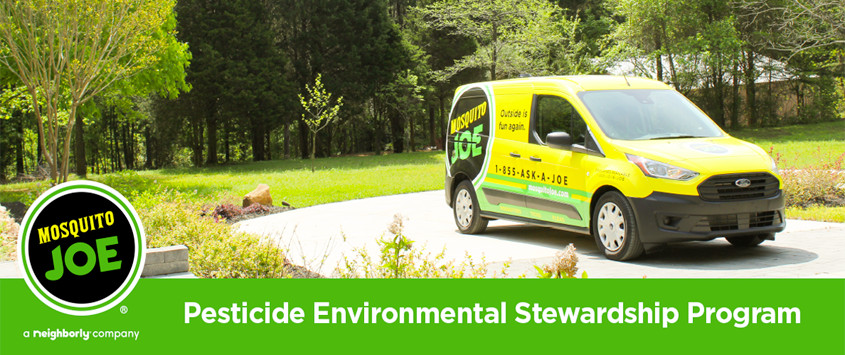
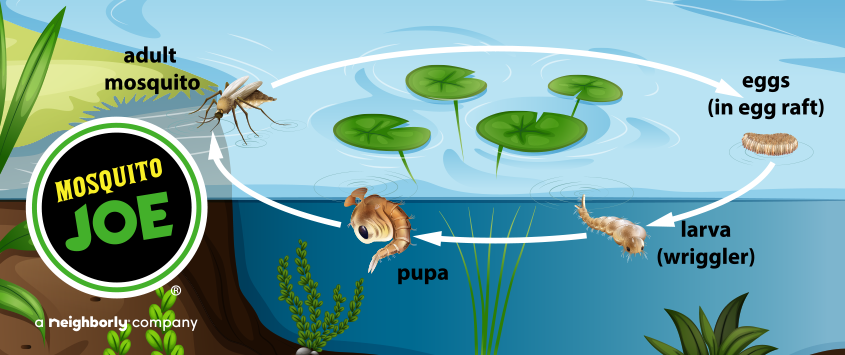
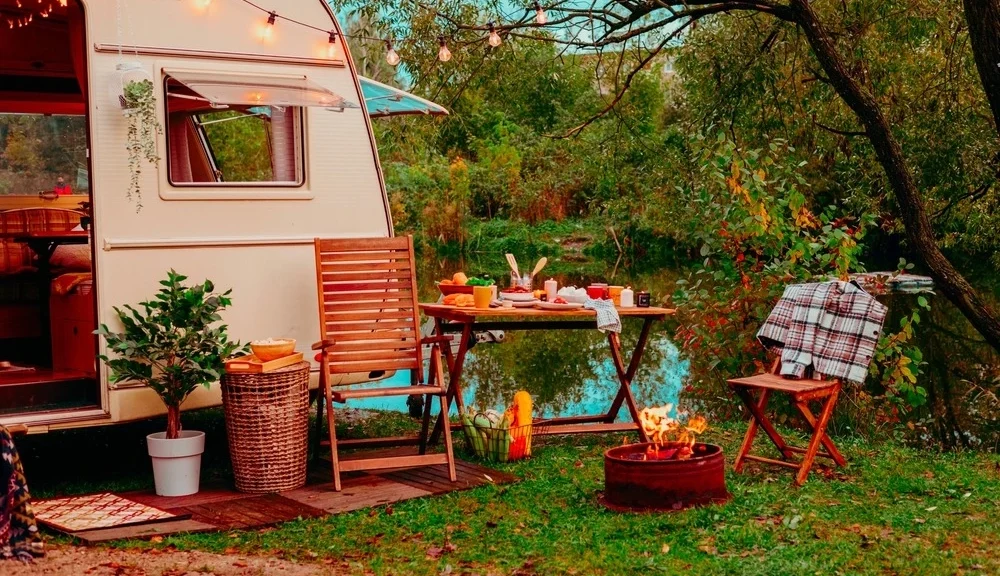
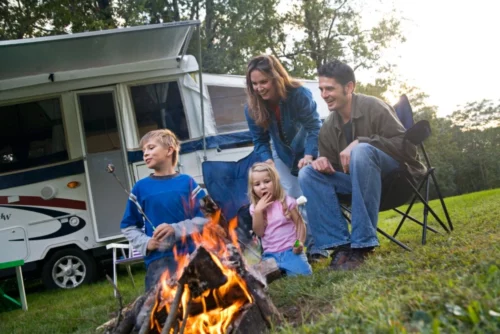 A camping trip is the perfect way to spend time with family and friends and de-stress. Here at Mosquito Joe®, we love getting outside and enjoying nature. That’s why packing up the car — or RV — and going camping is one of our favorite ways to unwind and spend time outdoors too.
A camping trip is the perfect way to spend time with family and friends and de-stress. Here at Mosquito Joe®, we love getting outside and enjoying nature. That’s why packing up the car — or RV — and going camping is one of our favorite ways to unwind and spend time outdoors too.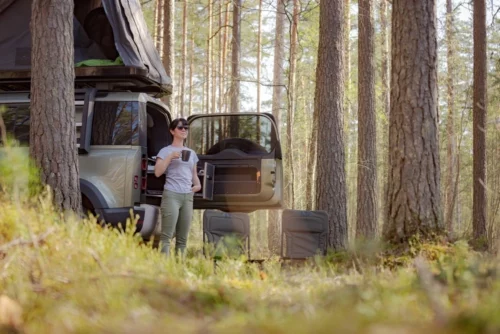
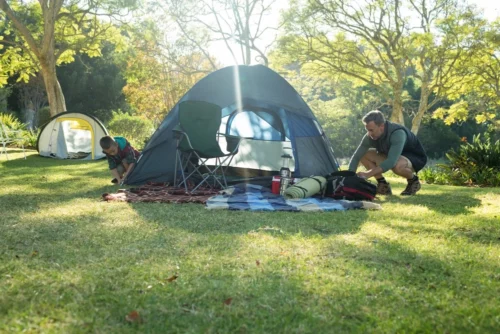 When considering how to keep mosquitoes away while camping, the number one thing to look for is standing water. Mosquitoes breed there, so make sure to eliminate any standing water from your campsite. A bottle cap full of water alone can breed over 300 mosquitoes. By removing stagnant water, you will ensure that more mosquitoes won’t appear.
When considering how to keep mosquitoes away while camping, the number one thing to look for is standing water. Mosquitoes breed there, so make sure to eliminate any standing water from your campsite. A bottle cap full of water alone can breed over 300 mosquitoes. By removing stagnant water, you will ensure that more mosquitoes won’t appear.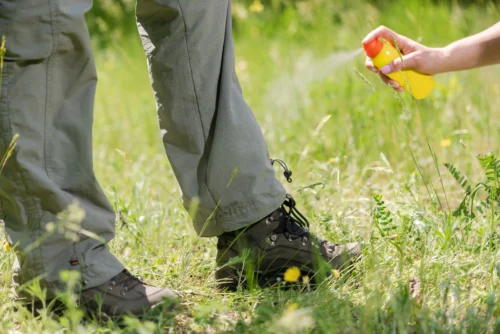 If you’re roughing it and spending your camping trip in a tent rather than an RV, having the right tent works wonders for keeping mosquitoes at bay. Here are some factors to consider when choosing a tent for your next camping trip:
If you’re roughing it and spending your camping trip in a tent rather than an RV, having the right tent works wonders for keeping mosquitoes at bay. Here are some factors to consider when choosing a tent for your next camping trip: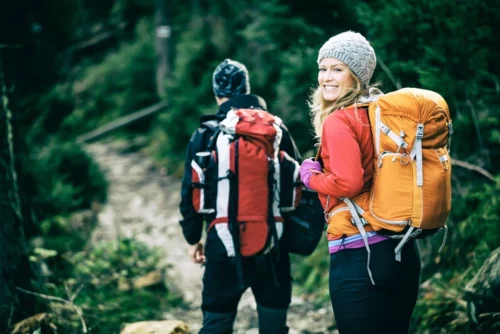 Insect repellents line the shelves of drugstores during the summer months. Purchasing a bug spray that contains DEET will keep mosquitoes from biting while you’re pitching your tent, hiking, or biking.
Insect repellents line the shelves of drugstores during the summer months. Purchasing a bug spray that contains DEET will keep mosquitoes from biting while you’re pitching your tent, hiking, or biking.